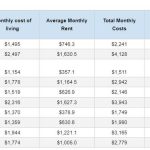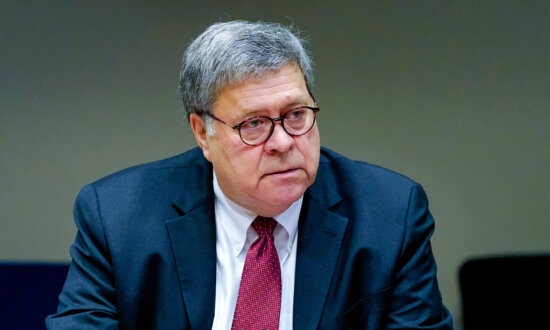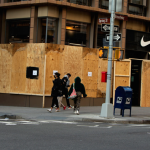FILE – In this April 12, 2020, file photo, a woman prays while wearing a face mask before speaking at an Easter drive-in service at the International Church of Las Vegas, in Las Vegas. (AP Photo/John Locher, File)
OAN Newsroom
UPDATED 12:16 PM PT — Tuesday, July 14, 2020
China is targeting U.S. officials over their support for religious freedom. The Monday announcement of sanctions enacted by the Chinese regime against Republican lawmakers, including Sen. Marco Rubio, Sen. Ted Cruz and congressman Chris Smith, also included action against an American Ambassador Sam Brownback.
Brownback is U.S. ambassador-at-large for religious freedom and was nominated for the position by President Trump in July 2017 as part of the administration’s push to emphasize the defense of religious rights worldwide within U.S. foreign policy.
This policy focus led to President Trump headlining a United Nations event on religious freedom in 2019, which made him the first American president in history to convene a UN meeting on the subject.
“We are standing up for persecuted Christians and religious minorities all around the world like nobody has ever done,” stated the president.
Ambassador Brownback, who previously served as governor of Kansas, was instrumental in arranging the meeting. Since being confirmed to his current position, he has led a diverse portfolio focused on applying U.S. soft power to combating global threats to people’s freedom to worship.
He has also been sharply critical of China’s treatment of religious institutions, which for years have suffered under suppressive policies in Mainland China. On part of this, the Chinese regime’s recent sanctions against him are not particularly surprising, according to analysts.
“There is no nation on the Earth that pushes human rights of religious freedom any more than the United States or than the Trump Administration does,” Brownback stated. “And you can’t come up with a single name of anybody else that does, this is true.”
Religious institutions in Mainland China are required to express allegiance to the principles of the Communist Party. Churches that fail to do so are declared illegal institutions and suffer destruction at the hands of the state.
Crosses and other religious symbols have been burned, and translations of the Bible have to be approved by the state before publication to the point of having their text altered to fit Communist Party ideology.
With the enactment of a new national security law, Hong Kong Christians are expressing fears suppression is coming to one of the last refuges of religious freedom on Chinese territory.
Of particular concern to Hong Kong Catholics is a provision in the new law that condemns dealing with foreign institutions. Since the church is headquartered in Rome, the Chinese regime considers it a foreign institution and is demanding all episcopal appointments receive approval from the state before proceeding all in the name of “national unity.”
“Now, I really find myself in difficulty to understand what is this unity because if that means to be subservient to the government and to applaud this law, it’s against my conscience,”said Joseph Cardinal Zen, bishop emeritus of Hong Kong. “Because this law is taking away all the freedoms; not only religious freedom, but simply the freedom.”
The Trump administration has condemned these acts of suppression in no uncertain terms and vowed to work against all attempts at curtailing inalienable human rights, including by enacting sanctions against Chinese officials who partake in these measures. This prompted China’s recent attempts at retaliation.












